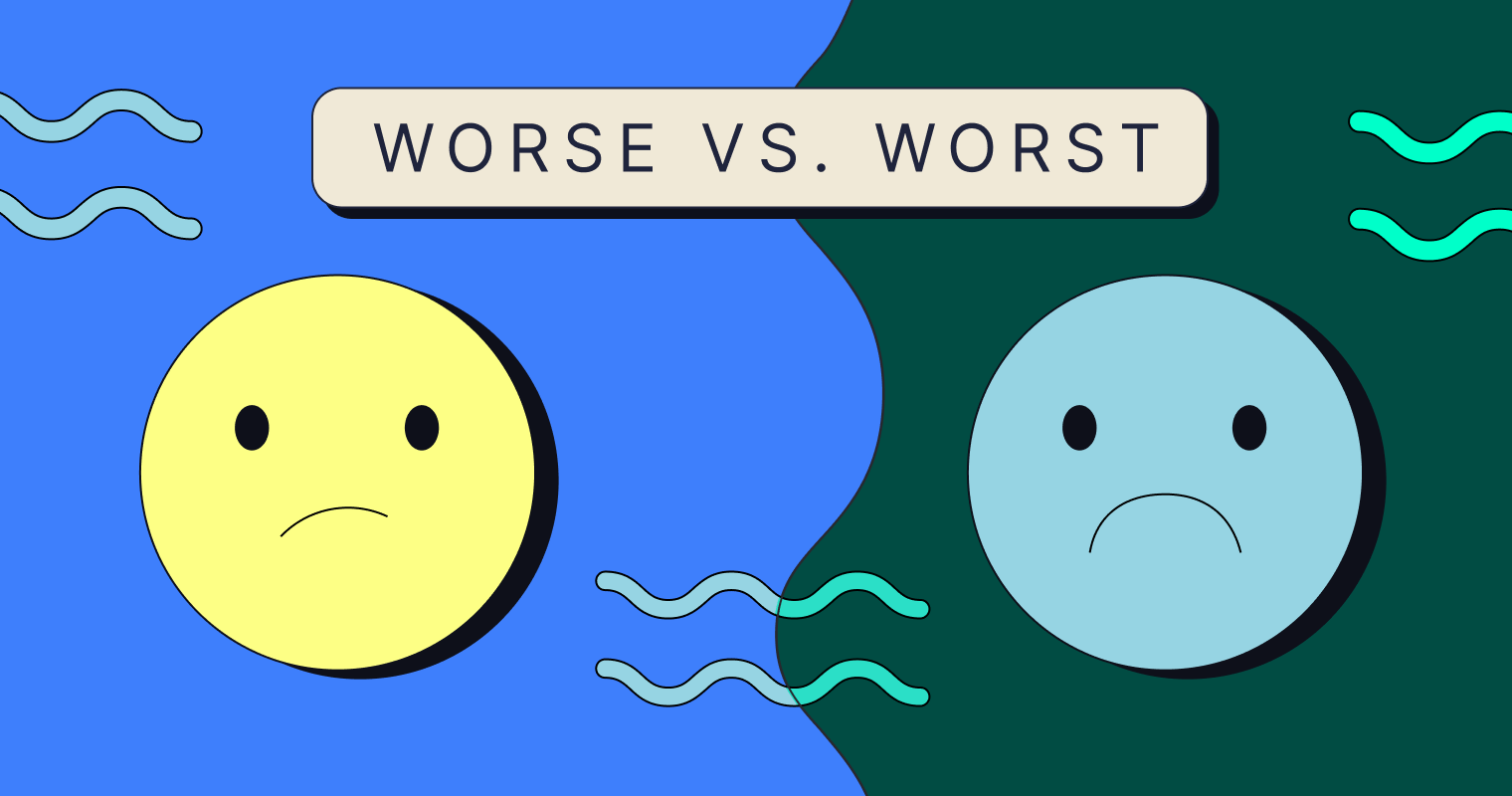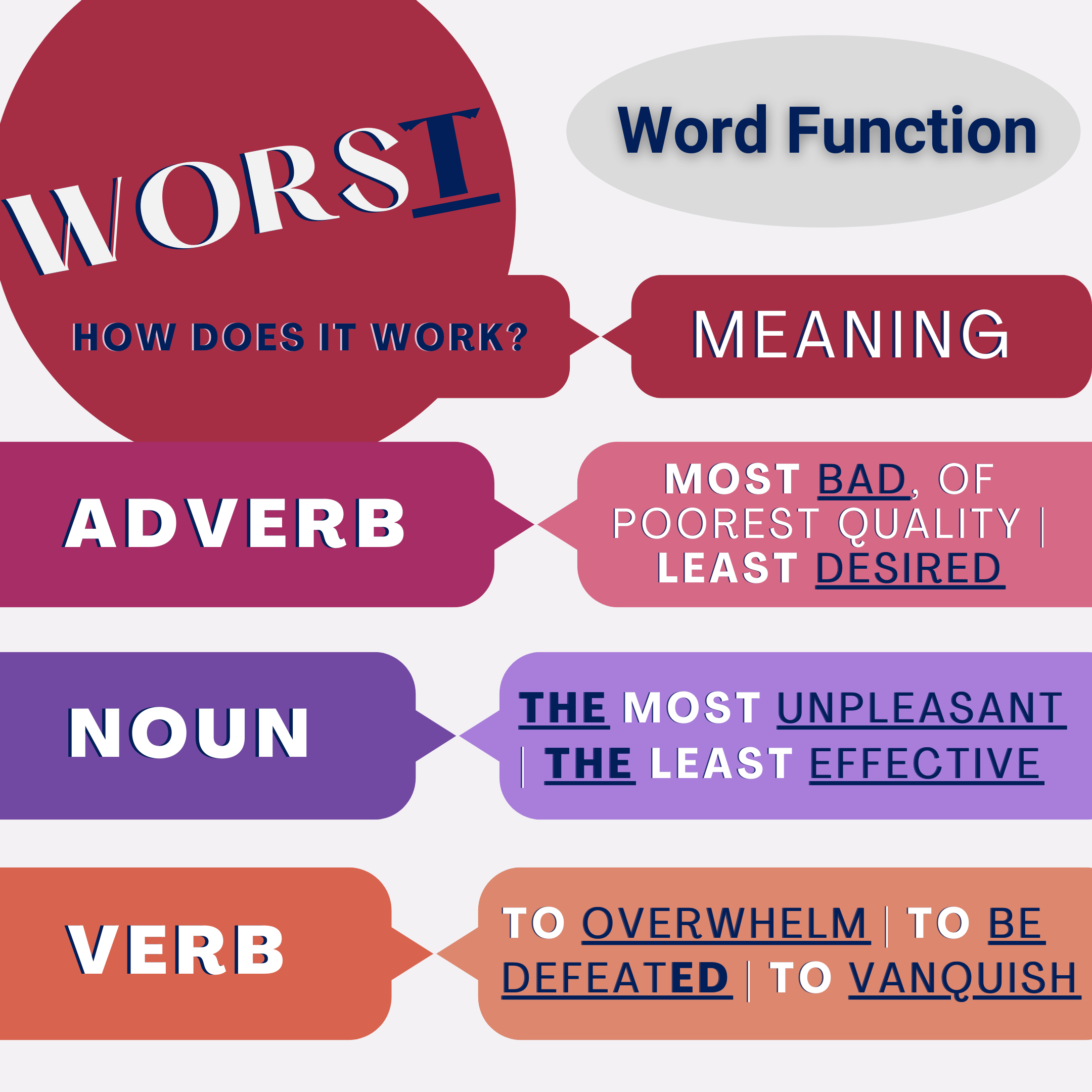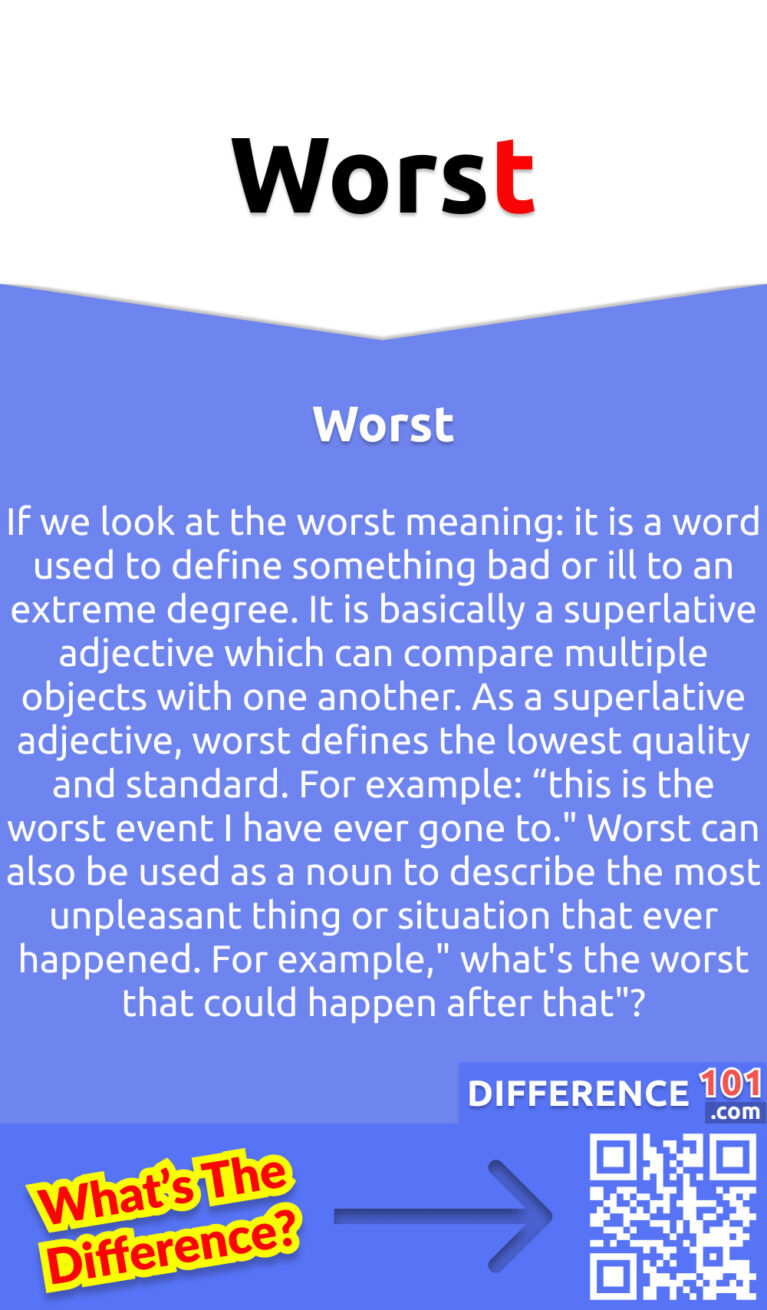Discovering The Worst Colleges In The United States: What To Watch Out For
Choosing where to go for higher learning is a really big deal, you know? It's a decision that can shape your future in so many ways, from what you learn to who you become and even, perhaps, how much money you might make later on. Nobody wants to end up in a situation where they feel like they've wasted precious time and hard-earned money. That's why, honestly, it's pretty important to understand what makes some colleges less than ideal, or even, you know, the very worst in some respects.
When we talk about the "worst" colleges, we're not just being mean; we're really talking about institutions that might be of the lowest quality, or perhaps offer the most unpleasant, difficult, or severe experiences for students. It's about finding those places that are, in a way, the least good when you compare them to others. Think about it like that awful pizza you might have had once – the kind that was, like, the worst you'd ever tasted.
This article is here to help you spot those potential pitfalls. We'll look at the signs that a college might not be the right fit for you, or might even be, you know, a place to avoid altogether. Our goal is to give you some insights, so you can make a smart choice and find a place that truly supports your goals, rather than leaving you feeling, well, like you picked the least favorable outcome.
Table of Contents
- What Makes a College "Worst"?
- Red Flags to Look For
- Understanding Graduation and Loan Default Rates
- The Importance of Accreditation
- Student Support and Campus Life
- Looking Beyond the Brochure
- What to Do Instead: Smart College Choices
- Frequently Asked Questions About College Choices
- Making Your Best College Decision
What Makes a College "Worst"?
So, what exactly puts a college in that category of being, well, the "worst"? It's not always about a single thing, but often a combination of factors that just don't add up to a good educational experience. For many, it means a place that offers the lowest quality of education, or perhaps, you know, a truly unpleasant environment for learning.
One big indicator is very low academic standards. This could mean professors who aren't really engaged, outdated teaching methods, or a curriculum that just doesn't prepare students for the real world. You might find that the facilities are pretty run-down, or there's a serious lack of up-to-date resources for students, which is a bit of a problem.
Another aspect of a less-than-ideal college is when it leads to a lot of student debt without a clear path to a good job or decent earning potential. It's like taking on a huge loan for something that doesn't actually help you move forward. In some very unfortunate cases, it could even involve practices that are, you know, a bit corrupt or ill-intentioned, leading to a truly unfavorable outcome for those who enroll.
- The Dodgers Signed The Reigning Cy Young Winner And It Will Cost Them Much More Than His Salary
- James Williamson Net Worth
Red Flags to Look For
When you're looking at different colleges, there are some clear warning signs that should make you, you know, pause and think twice. These are the things that often point to an institution that might not have your best interests at heart. Paying attention to these signals can really save you a lot of trouble later on.
Aggressive Recruitment Tactics
If a college seems overly pushy in its admissions process, that's a pretty big red flag. They might call you constantly, pressure you to sign up right away, or make promises that just sound too good to be true. A reputable institution will give you time to make a decision, and they won't try to rush you into something you're not ready for, or something that, you know, feels a little off.
Be wary of places that offer instant admission or waive application fees without really looking at your qualifications. It's almost as if they're just trying to get bodies through the door, rather than finding students who are a good fit for their programs. This kind of behavior can be a sign of a college that's, like, more interested in your money than your education.
Opaque Financial Aid Practices
Understanding college costs can be tough enough, but some institutions make it even harder. If a college's financial aid information is really unclear, or if they seem to have a lot of hidden fees that pop up unexpectedly, that's a problem. They might encourage you to take out the maximum amount of student loans without really explaining the long-term implications or showing a clear path to how you'll pay them back.
You should always get a clear, itemized breakdown of all costs and financial aid packages. If they're vague, or if they try to gloss over the total price, it's a sign that they might not be completely honest about what you're getting into. Basically, you want to know exactly what you're paying for, and what you're getting in return, which is, you know, just good sense.
Questionable Accreditation
This is, honestly, one of the most important things to check. Accreditation means a college has met certain quality standards set by an independent body. If a college isn't properly accredited, or if its accreditation comes from a less-than-reputable source, your degree might not be recognized by employers or other universities. It's like having a diploma that's, well, not really worth the paper it's printed on.
There are different types of accreditation, but generally, regional accreditation is considered the gold standard in the United States. If a college only has national accreditation, or if you can't find any accreditation information at all, that's a very, very serious red flag. It could mean your credits won't transfer, and your degree won't be valued, which is, you know, a really bad outcome.
Understanding Graduation and Loan Default Rates
Two very telling numbers to look at when researching colleges are their graduation rates and their student loan default rates. These figures can give you a pretty good idea of how well a college is serving its students, and whether they're setting them up for success. It's like looking at a car's mileage and maintenance history to see if it's a good buy.
A low graduation rate, for instance, means that a lot of students who start at that college don't actually finish their programs. This could be because of poor academic support, a lack of engaging programs, or maybe, you know, students just realizing it wasn't the right place for them. It suggests that the college isn't effectively helping its students reach their academic goals.
Similarly, a high student loan default rate is a serious concern. This means a significant number of former students are struggling to pay back their loans after leaving the college. It often points to a situation where the education received didn't lead to good job prospects or sufficient income to manage the debt. Colleges with very low graduation rates and high default rates are often, well, not doing great by their students, and that's a pretty clear sign of a less favorable outcome. You can often find this kind of data on government education websites, like the U.S. Department of Education's College Scorecard, which is a useful external reference for this kind of thing.
The Importance of Accreditation
We touched on this earlier, but it's really worth emphasizing just how vital accreditation is when you're looking at colleges. It's basically a stamp of approval that says an institution meets certain quality standards, and it's a big deal for your future. Without proper accreditation, your degree might not mean what you think it does.
Think about it: if you earn a degree from an unaccredited college, other universities might not accept your credits if you try to transfer. More importantly, many employers won't recognize your diploma, and you might not qualify for professional licenses in certain fields. It's like buying a brand-name product only to find out it's, you know, a cheap knock-off that doesn't work.
In the United States, regional accreditation is generally considered the most respected type, covering broad geographic areas. National accreditation is usually for career-focused schools. Always check which type of accreditation a college has, and verify it with the accrediting agency itself. This step is, honestly, critical to making sure your hard work pays off and isn't, in a way, wasted.
Student Support and Campus Life
A college is more than just classrooms; it's a whole environment where you're supposed to grow and get support. If a college lacks good student support services, that's a pretty big sign that it might be a less-than-ideal place. This includes things like career counseling, mental health services, and even basic academic advising.
Imagine trying to figure out your career path with no one to talk to, or struggling with a class and having no tutors available. A college that doesn't invest in these areas is, you know, basically leaving its students to fend for themselves. Poor student-to-faculty ratios can also mean you won't get the individual attention you might need, making it harder to succeed.
Beyond academics, consider the overall campus life. Is it a place where students feel safe and supported? Are there opportunities to get involved in activities and build a community? A campus environment that just doesn't feel right, or one where students seem unhappy, could point to a college that's, in some respects, failing to provide a positive and enriching experience.
Looking Beyond the Brochure
College brochures and websites are designed to make every institution look amazing, but the reality can be very different. To truly understand if a college is a good fit, or if it might be one of those "worst" options, you really need to dig a little deeper. Don't just take their word for it, you know?
If possible, visit the campus. See the facilities with your own eyes, and pay attention to the general atmosphere. Talk to current students – they'll often give you the most honest insights into what it's really like to study there, both the good and the bad. Their experiences can tell you a lot about the quality of the education and the support systems in place.
Also, research post-graduation success rates. Are their graduates getting jobs in their fields? What are their average starting salaries? While reviews can be helpful, take them with a grain of salt, as they can sometimes be extreme. But if you see a consistent pattern of negative feedback, that's definitely something to consider. Learn more about on our site for more tips on researching colleges.
What to Do Instead: Smart College Choices
So, if you're trying to avoid the "worst" colleges, what should you focus on instead? The key is to make a choice that truly aligns with your personal goals, your financial situation, and your learning style. It's about finding the best fit for you, which is, you know, a very personal thing.
Consider community colleges as a great starting point. They often offer more affordable tuition, smaller class sizes, and a chance to earn transferable credits before moving on to a four-year university. Trade schools are also an excellent option if you're looking for hands-on training and a direct path to a specific career.
Online programs have also come a long way, offering flexibility and access to quality education from reputable institutions. The point is, there are many paths to a good education that don't involve risking your future on a less-than-stellar college. And, like, you can link to this page for more ideas on smart educational paths.
Frequently Asked Questions About College Choices
People often have a lot of similar questions when they're trying to figure out where to go to college. It's a big decision, so it's natural to have concerns and want to get things right. Here are some common questions and thoughts on them.
What makes a college "bad"?
A college can be considered "bad" for several reasons, often relating to its overall quality and how it impacts students. This includes very low academic standards, where the teaching isn't good, or the courses don't really prepare you for anything. It also means poor student support, like not having enough help for academics or personal issues.
Another big factor is when the financial cost is really high, but the value you get back, like job prospects or a recognized degree, is very low. Basically, it's about a place that offers the least favorable outcome for your time and money, and sometimes, you know, even engages in practices that are just not right.
Are there colleges that aren't worth the money?
Absolutely, there are definitely colleges where the cost doesn't match the value you receive. These are often institutions with very high tuition fees but low graduation rates, meaning many students don't even finish. They might also have high student loan default rates, which suggests that graduates aren't finding jobs that allow them to pay back their debt.
It's all about the return on investment. If you're paying a lot but not getting a strong education, good career prospects, or a recognized degree, then it's probably not worth the money. You want to avoid those situations where you end up with a huge financial burden and, you know, not much to show for it.
How can I tell if a college is a scam?
Spotting a college that might be a scam involves looking for several key red flags. First, check their accreditation very carefully; if it's not from a recognized regional or national agency, that's a huge warning sign. Aggressive sales tactics, like constant calls or pressure to enroll immediately, are also a big indicator.
Be wary of colleges that make unrealistic promises about job placement or earning potential, especially if they don't have clear data to back it up. Hidden fees or very confusing financial aid information can also point to a problem. Basically, if something feels too good to be true, or if they're not transparent, it's probably best to be, you know, very cautious.
Making Your Best College Decision
Choosing a college is a journey, and it's one where you want to feel confident about your steps. By understanding what makes some colleges less than ideal, you're already giving yourself a huge advantage. It's about being informed and, you know, taking the time to really look into things.
Remember to research thoroughly, ask lots of questions, and trust your gut feelings about a place. Seek guidance from people you trust, like counselors or family members, who can offer different perspectives. Your goal is to find an educational home that supports your growth and helps you achieve your dreams, not one that leaves you feeling like you made the least good choice.
By focusing on quality, transparency, and a genuine commitment to student success, you can steer clear of those institutions that are, in some respects, the worst, and instead find a place where you can truly thrive. It's really about making sure your hard work and investment lead to the most favorable outcome for you.

301 Moved Permanently

worse vs worst what is the difference?

Worse vs. Worst: 7 Key Differences, Pros & Cons, Examples | Difference 101